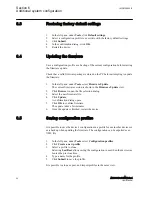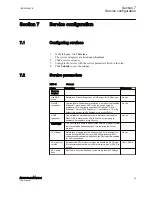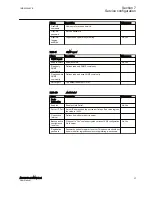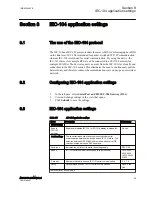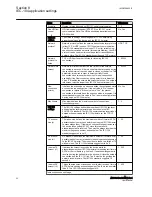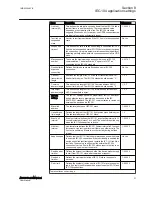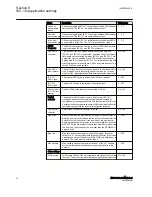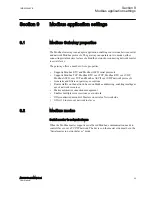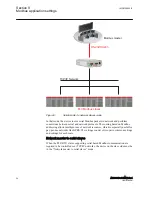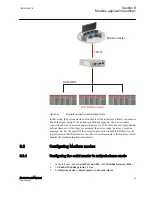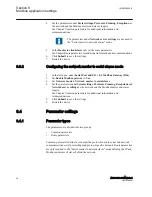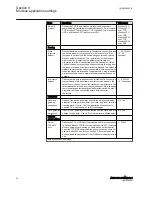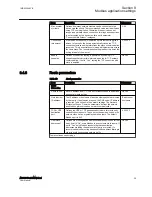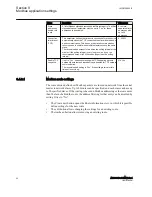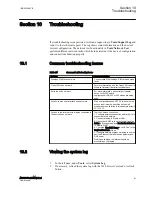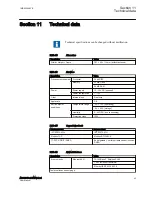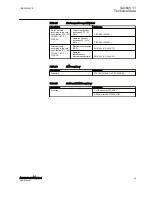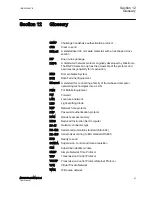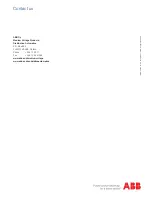
Name
Description
Value range
Network
protocol
Defines the TCP/IP and Modbus protocol used on network
communication. Possible protocols are Modbus TCP protocol over
TCP, Modbus RTU protocol over TCP, Modbus RTU protocol over
UDP, and Modbus ASCII protocol over UDP.
ModbusTCP,
ModbusRTU
over TCP,
ModbusRTU
over UDP,
ModbusASCII
over TCP,
ModbusASCII
over UDP
Framing
Slave
response
timeout
Defines the time in microseconds (millionths of a second) how long
the device waits for the response from a Modbus slave. If the
response is not received, the device can generate and return a
Modbus gateway exception. The reply timeout of the Modbus
master must be greater than the gateway device timeout.
Otherwise, the flow of request-reply communication is violated.
The device does not accept a new request before the reply from
the slave is received or the reply timeout is elapsed. The delays in
network communication can vary especially in wireless networks.
When the slaves are located on the network side, ping or another
method should be used to estimate the delay packets spend on
network.
0...90 000 000
(0...90
seconds)
Inter-frame
timeout
Defines the idle time in microseconds (millionths of a second) that
marks the end of Modbus frame in serial communication. If the
value is zero, the device uses the standard 4 character time. The
recommendation is to use a value as small as possible to speed up
communication and increase the value if problems arise. Some PC
programs can insert unexpected delays between serial
characters.
0...2 000 000
(0...2 seconds)
Exceptions
Generate
gateway
exceptions
Defines if the device generates and returns a Modbus gateway
exception message to the master if no valid reply is not received
from the slave. If set to “Yes”, the generation of exceptions is
enabled. This functionality is useful for debugging.
No, Yes
Pass gateway
exceptions
If set to “Yes”, gateway exception replies from the slave side are
passed to the master. If set to “No”, the replies are filtered away.
No, Yes
Network
server settings
Server
TCP/UDP -
port
Defines the TCP or UDP port that masters can form connections
to. Default Modbus TCP/IP communication port is 502. If multiple
Modbus gateways are running on same device (for both serial
ports) the TCP/UDP communication ports must not be same. For
example, ports 502 and 504 can be used. The network and the
device's firewalls must enable TCP or UDP communication for that
port.
1...32500
Table continues on next page
Section 9
1MRS758460 B
Modbus application settings
38
ARG600 Dual SIM Variant
User Manual

